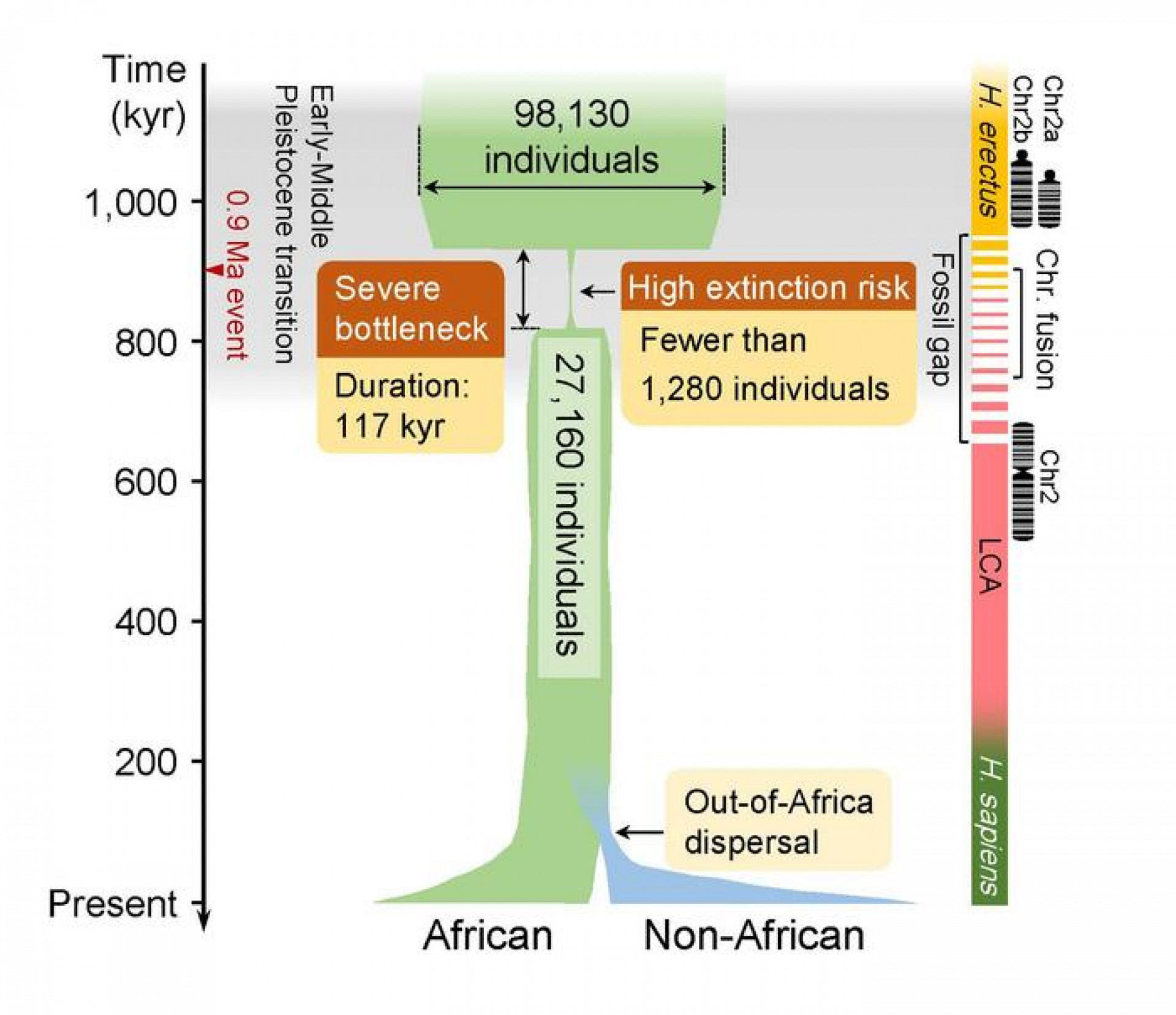Man was on the brink of extinction, according to a new scientific discovery

In a new study published in Science on Aug. 31, poised to reshape our understanding of early human history, revealing that a near-catastrophic event nearly wiped out humans as we know them today.
Using a cutting-edge technique called FitCoal (fast infinitesimal coalescence process) and the genomic sequences of modern humans, they have revealed a chapter in our history that has long baffled the scientific community.
Did humans ever become nearly extinct?
The research sheds light on a previously unknown struggle that early human ancestors faced between 930,000 and 813,000 years ago. Using the FitCoal method to infer ancient population sizes, the team discovered evidence of a severe reduction, a bottleneck, in the human population.
The bottleneck lasted about 117,000 years, with only about 1,280 reproducing individuals to sustain the human population. Here the image that graphically explains what happened.
“The gap in the African and Eurasian fossil record can be explained by this bottleneck in the early Stone Age also in chronological order. It coincides with this proposed time period of significant loss of fossil evidence,” senior author Giorgio Manzi, an anthropologist at the Sapienza University of Rome, explained in a news release.
The population decline of our earliest human ancestors is thought to be mainly due to climate change. Glacial events during this period caused sudden changes in temperature and severe droughts.
To contribute to the almost disappearance of man would have been the disappearance of some species on which his diet is based.
The implications of this near-extinction event are nothing short of startling. It is estimated that a staggering 65.85% of the genetic diversity existing in our species could have been wiped out during this tumultuous era.
This dramatic loss speaks volumes about the perseverance of our early human ancestors.
Curiously, this genetic bottleneck carries an unexpected twist; the struggle for survival during this period appears to have played a role in the formation of modern human chromosomes.
The Mastery of Fire
"The new discovery opens up a new field in human evolution because it raises many questions," explained senior author Yi-Hsuan Pan, an expert in evolutionary and functional genomics at East China Normal University (ECNU).
“Like where these individuals lived, how they overcame catastrophic climate change, and whether natural selection during the bottleneck accelerated the evolution of the human brain.”
They pointed out that the control of fire and the move to a more hospitable climate around 813,000 years ago may have been crucial factors in allowing the human population to recover, although studies thus far believed that fire was controlled at a later date.
“These findings are just the beginning,” concluded LI Haipeng, theoretical population geneticist and computational biologist at the Shanghai Institute of Nutrition and Health, Chinese Academy of Sciences (SINH-CAS).
“Future goals with this knowledge aim to paint a more complete picture of human evolution during this transitional period from the Early to Middle Pleistocene, which, in turn, will continue to unravel the mystery that is human ancestry and evolution primitive.”
The full study was published in Science on Aug. 31 .

Thanks to our Telegram channel you can stay updated on the publication of new articles from Economic Scenarios.
The article Man was on the verge of extinction, according to a new scientific discovery comes from Scenari Economici .
This is a machine translation of a post published on Scenari Economici at the URL https://scenarieconomici.it/luomo-e-stato-sullorlo-dellestinzione-secondo-una-nuova-scoperta-scientifica/ on Thu, 31 Aug 2023 19:40:50 +0000.

